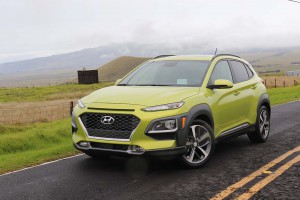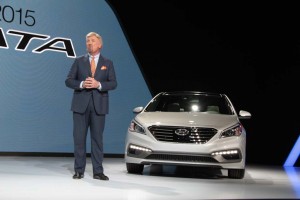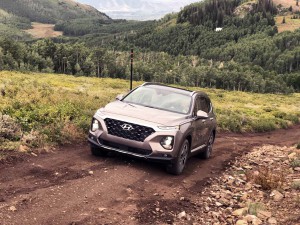
A lack of product diversity, which is being remedied, has hurt Hyundai sales. Hyundai's Kyung Soo Lee is heading back to South Korea for it.
Hyundai has an unexpected vacancy at the top. Kyung Soo Lee, the CEO of the carmaker’s U.S. operations is on his way back to South Korea and, for the moment, it is not clear when a replacement will be named, according to a company spokesman.
The shake-up, which Hyundai described as “part of a regular, group-wide personnel change,” comes at a critical time for the Korean carmaker. After years of rapid growth in the American market, Hyundai’s momentum began to slow, mid-decade, a problem largely blamed on a lack of a competitive truck line-up. With the arrival of the little Kona, Hyundai is hoping to kick-start sales, with even more products in the pipeline, according to senior officials.
Hyundai reportedly has a fully electric SUV in development and, as TheDetroitBureau.com recently reported, it is moving closer to launching a production version of the wildly popular Santa Cruz pickup, though it appears that move could be pushed back by a year from the early target of 2020.
The departure of Hyundai Motor America CEO “Kenny” Lee comes as something of a surprise, as he was in the post for just more than a year. He was named interim chief executive following the December 2016 ouster of Dave Zuchowski, only being appointed full-time CEO in September 2017.
(Hyundai shows off electric version of Kona crossover. Click Here for the story.)

Hyundai let its U.S. Chief Dave Zuchowski go a two years ago amidst several changes the maker is tackling.
But Lee faced a series of challenges during his tenure. The most significant one was trying to rebuild sales momentum. Through the end of September, U.S. demand totaled 501,701, about a 2% year-over-year decline. With the launch of the Kona, however, the numbers have started moving in a positive direction, albeit at a slow pace. In September, volume was 57,359, up from 57,007 the year before.
But Hyundai faces other issues, including a Nov. 14 hearing before the Senate Commerce Committee, where company officials have been asked to appear alongside colleagues on the Kia side of the Korean carmaker. They’ll face a grilling about reports of engine fires in some of their vehicles. Both brands are also under pressure to recall as many as 3 million crossovers and sedans.
Both companies have promised to work with U.S. regulators, though they have not confirmed whether they will send representatives to the Senate hearing.
Back in Korea, the parent company faces its own problems, including weak earnings and falling stock prices. On the positive side, traditionally turbulent relations with union workers appear to be running more smoothly, of late.
Nonetheless, Lee’s return to the home market comes as a number of other management changes are taking place. Just last month, Euisun Chung was named executive vice chairman of the company and is expected to soon replace his father, 80-year-old Chung Moon-koo, as head of the automaker. The son has been driving many of the personnel changes while also trying to shake up key elements of Hyundai-Kia strategy.
(Click Here for more about 2019 Hyundai Veloster.)
He has pushed the automaker into new areas of mobility and electrification, among other things, increasing the emphasis on fuel-cell technology. Hyundai is just launching the new Nexo, its latest-generation hydrogen car in the U.S.
Like the all-electric version of the Kona, Hyundai opted for a utility-vehicle body for Nexo. That’s part of a broader shift into the truck segment at a company which, until recently, only had two utes to offer American buyers: the Santa Fe and smaller Tucson.
Expect to see even more, a senior executive told Automotive News.
“Our strategy is to launch more SUVs,” Hyundai Motor Co. CEO Wonhee Lee told the trade publication at the company’s global headquarters in Seoul. “We will have a full lineup. We are trying to increase our adaptability. When the SUV market grows, we will be able to match that growth.”
Hyundai isn’t alone. Kia, in fact, got a jump on its larger sibling, in September revealing the new Telluride model it is adding. A version will follow carrying the Hyundai badge, replacing the three-row version of the Santa Fe now on sale.
Lee, who is not related to the now-departed CEO of Hyundai Motor America, said the company is looking to expand the capacity and capabilities of its Alabama assembly plant. If the project gets the green light, it would likely move production of several models to the U.S. Those would include both the Tucson SUV and, if it finally goes ahead, the Santa Cruz.
(To see more about Hyundai’s expanding line-up of SUVs, Click Here.)
Shortly before his departure as U.S. CEO, Kenny Lee told TheDetroitBureau.com that the current schedule calls for introducing the compact pickup “in the U.S. market in 2020,” though he cautioned that this could push back a year.

